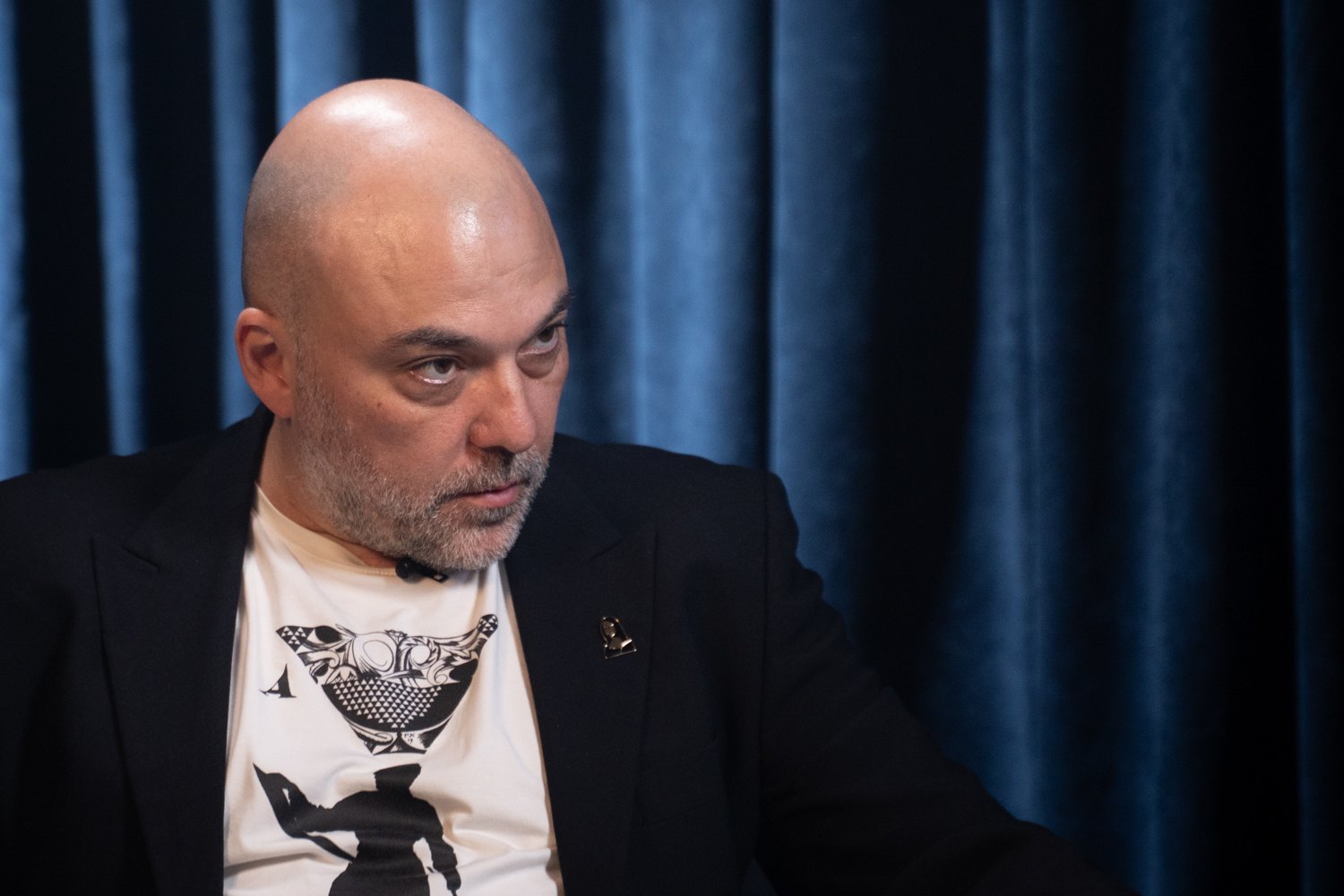
“I do not have a clear answer as to whether China or Iran are political nations. As far as I am concerned, Russia is definitely not a political nation.”
In conversations, interviews and lectures, you often speak about the conflict between empires and political nations, and about their formation. It is now fashionable to claim that a political nation is being established after the full-scale invasion of Ukraine. Can you distinguish between an inhabitant of an empire and a citizen of a state that is a political nation?
I think that the process of forming a political nation takes much longer than 3–4 years. Political nations do not form so quickly.
Why are political nations so important in today’s world? As Yaroslav Hrytsak writes, the body that governs the whole world is the United Nations – not kingdoms, monarchies, autocracies or empires, but nations. Of course, we have many questions for this body.
Is a political nation a universal concept that can describe the situation in any country in the world? Analysing it from the perspective of political history and philosophy, I increasingly ask myself whether it is a European, transatlantic, Western construct.
I do not have a clear answer as to whether China or Iran are political nations. However, Russia, in my opinion, is definitely not a political nation. The Russians built an empire but did not fully form a political nation. Many of their internal problems turn into external threats – particularly for us.
We live in a world that seems to be divided into political nations. But we must understand that this is a fairly new phenomenon, even in European history.
What we call political nations is a relatively late phenomenon that took shape in Europe at the end of the Middle Ages and the beginning of the modern era.
Many well-known political nations formed even later. During my lectures, I introduce my students to the concept of a “late nation”. People are usually surprised to learn that this is how German philosopher Helmut Plessner described the German political nation at the beginning of the 20th century. The Germans formed their own political nation quite late compared to their neighbours – the French, Italians, Dutch and British.
The emergence of German Nazism was a growing pain. That is one of my hypotheses. The nation was formed late and very quickly, which led to the emergence of right-wing radical ideologies.
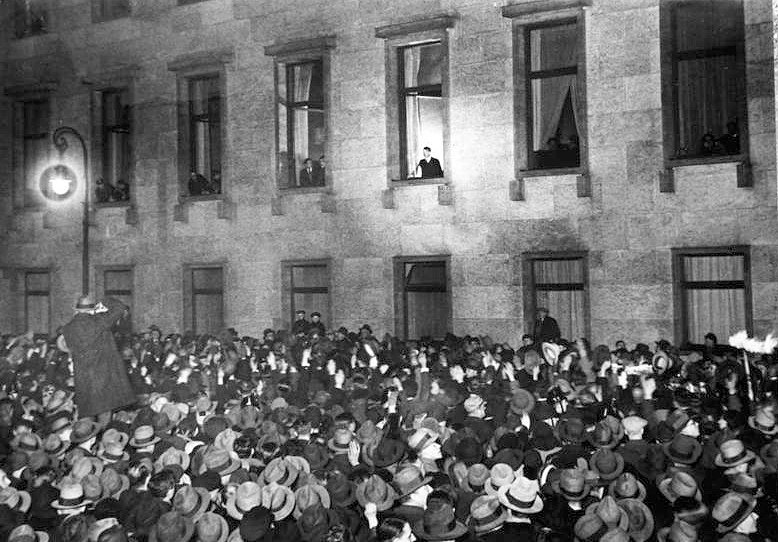
However, Germany overcame this disease and, in the second half of the 20th century, under the influence of liberal democracies – primarily the United States, France and Great Britain – formed a fully-fledged political nation, one of the most successful today.
Perhaps the future of the world does not lie in the structure of political nations? Perhaps it lies in some other structure? I am not sure.
A political nation is primarily a product of Western political culture and Western history
For me, a political nation is a group of people united not only by territory but also by identity – people who express a very simple thesis: “We are someone” – both to themselves and to others. Is it possible to have a non-homogeneous nation in this context? We are often accused of lacking unity, of being different and unable to agree on a shared formulation.
This definition, however, is not sufficient for me. If we apply such criteria, then the Russians would also qualify as a political nation. They have an idea of who they are – albeit perhaps a mistaken one. They hold rather morbid views of the outside world as a threat, but whether they are truly a political nation, whether they constitute a political unity, I am not sure.
Take the example of the two Koreas. What distinguishes North and South Koreans? They are one people who share a history, language and religious tradition – yet for some reason, North Korea and South Korea are now entirely different political nations. There are no universal criteria.
At the risk of being accused of Eurocentrism or Westernism, I still believe that a political nation is primarily a product of Western political culture and Western history.
Even when we consider successful political nations in the East – for example, the so-called Far Eastern Tigers – we see that they have, to a certain extent, modelled themselves on how political nations were formed in the Western world.
Why is South Korea one of the most successful countries in the world today – and one of the most successful political nations? Because the American model was applied there. North Korea, by contrast, fell under the influence of China and Russia. As a result, we are dealing with a state that resembles a concentration camp armed with nuclear weapons.
Perhaps I am being somewhat banal, but for me it is essential that a political nation is united by common values.

“For a nation to be successful and organically form its own state – one that does not turn into a concentration camp for all the peoples within it – it is necessary to rely on values.”
Identity means understanding what is valuable to you.
Relying on values is essential. They are necessary for a nation to succeed and organically form its own state – one that does not become a concentration camp for the peoples living within it, but instead serves as an instrument of progress and success.
Why did we name our – hopefully final – revolution The Revolution of Dignity, so that we would no longer have to repeat such terrible events in our pursuit of independence, freedom and the path to success? Because human dignity is one of the fundamental values of European transatlantic civilisation.
In a society that is rigidly hierarchical and vertically structured, the concept of dignity does not exist – because dignity can only flourish in horizontally structured societies. When you are embedded in a strict hierarchy, you are a master to those beneath you and their slave at the same time – and a slave to those above you, who in turn become your masters. Where is the space for human dignity in such a system?
Why was the slogan of the revolution “Freedom is our religion!”? Because freedom is another key value. Meanwhile, for our enemy – for the Russians – freedom is seen more as a threat. Why do they view the 1990s with such hostility, a time when Russia also had the chance to democratise? Because for them, it led to chaos.
Yeltsin, associated with democratic change, ordered tanks to fire on parliament. That is their idea of democracy. For most Russians, freedom is not a positive concept – it is a negative one.
What we see as unquestionable values – dignity, freedom, inherent human rights – are not recognised as such in Russia. This prompts the question: what unites them as a political nation? Does a political nation really exist there at all?
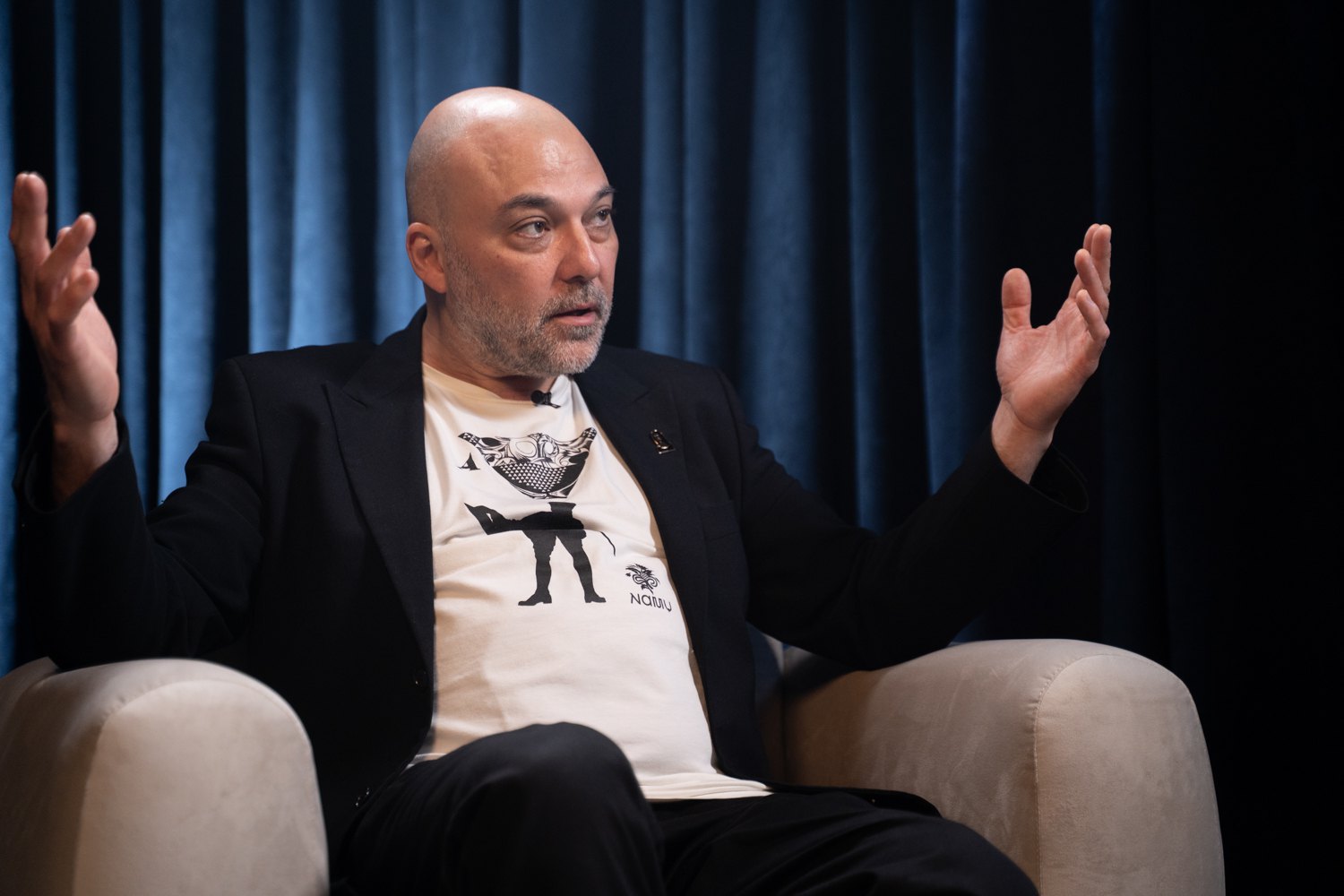
This issue ties into another historical concept – that of civilisation. In my opinion, extending the notion of civilisation to all forms of social organisation that did not originate in Europe is a mistake. This trend began with the works of influential thinkers such as Oswald Spengler, author of The Decline of the West, and Arnold Toynbee, author of A Study of History.
For me, civilisation is most closely associated with the term civitas – “free city” – which emerged in Northern Italy during the Middle Ages and later spread to other countries, modelled on the Greek polis. It is a city in which free and responsible citizens live.
A significant monument to our civilisational history is the monument to Magdeburg Law on the banks of the Dnipro in Kyiv. The entire territory of Ukraine organically belongs to this civilisation. At one time, we had over a hundred cities governed by various legal systems. By contrast, Russia had only two – and those were on the border with us.
This thesis may be provocative and invite criticism, but I believe that only those political cultures rooted in the tradition of free cities – with legal systems and governance based on citizen participation – can be considered civilisations. It is within this framework that modern political nations may take shape. I am unsure what the others represent.
We must replace the opposition between left and right with one between liberals and radicals of all kinds
You mentioned that Germany experienced a crisis of growth and that Nazism, in essence, was an expression of this. What is happening in Europe now, as right-wing radical movements and political groups receive a high level of support, and this appears to be an irreversible process? Is there a scenario for rolling back radicalism without war?
I consider futurology to be a pseudoscience, so I never make predictions. I can only describe what I observe now and what has happened in the past.
I have an essay on this topic entitled Change Your Intellectual Glasses. Many of the tools we used to describe and analyse the 20th century are now outdated. One of the main such tools is the opposition between left and right.
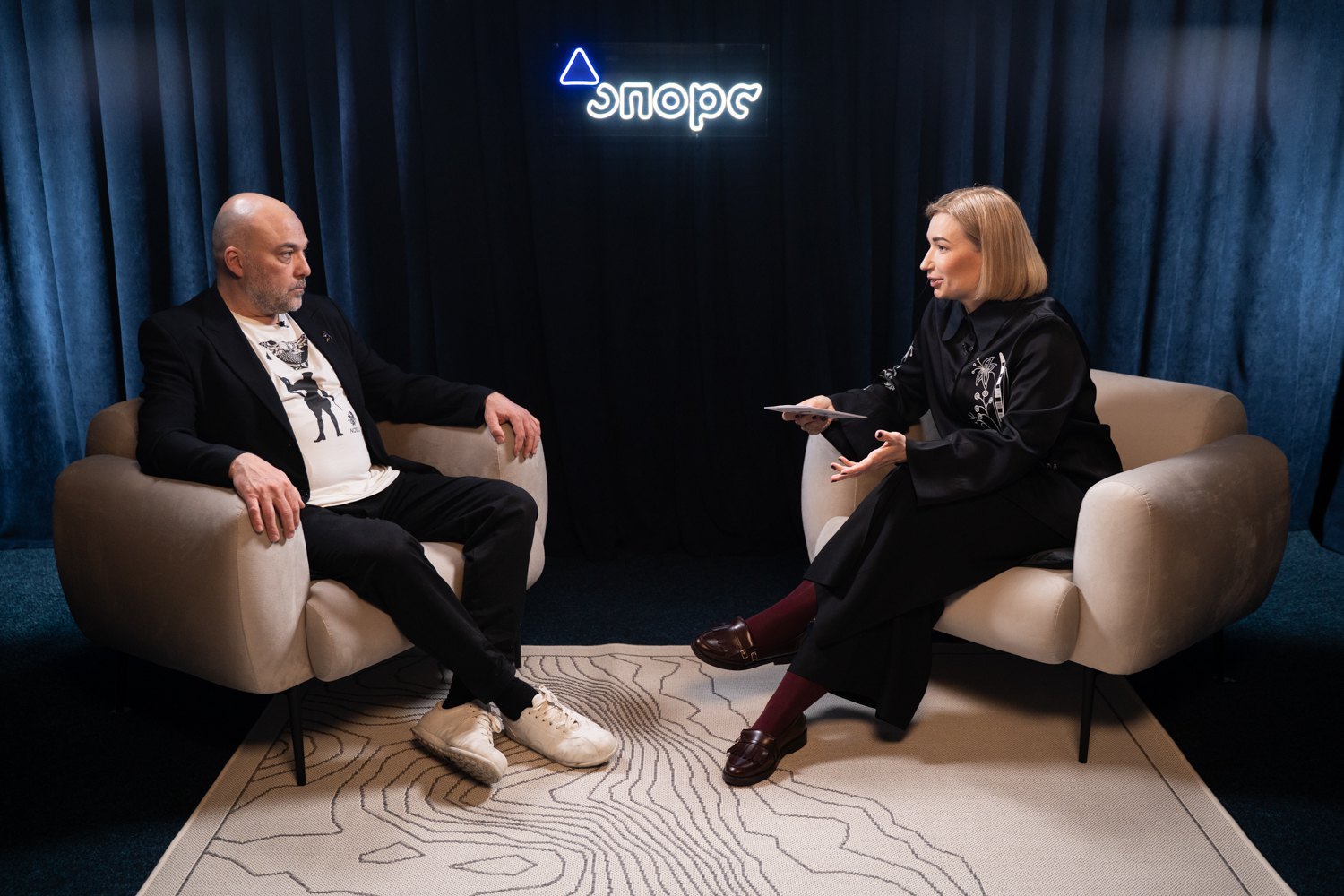
How can we explain who started the Second World War? Was it a war between the left and the right? Hitler and Stalin were allies. The radical right and the radical left tore Central Europe apart – and only two years later Nazi Germany attacked Bolshevik Russia.
Even in the 20th century, this opposition did not work particularly well, and now it is even less effective. I believe we must replace the opposition between left and right with one between liberals and radicals of all kinds. After all, the threat comes not only from right-wing radicals, but also from radical leftists. Who are Putin’s sympathisers across Europe? Both the right and the left. Today’s political trends cannot be adequately understood through the lens of the left–right opposition.
I am a Germanist, so I know the situation in Germany best. Before the elections held this year, we discussed various candidates with the well-known German intellectual and politician Marieluise Beck. She spoke about the threat posed by right-wing radicals – particularly Alternative for Germany (AfD). I mentioned Sarah Wagenknecht's Alliance, which split from the left, and she said that it is now a left-right party. It is even more radical than the party called Die Linke (“The Left”). AfD, on the other hand, is an ultra-right-wing party with xenophobic and homophobic rhetoric.
For the first time in modern German history, the far right has entered the Bundestag multiple times in a row. It came as a shock to the German liberal public – and not only to them, but to us as well – when AfD came in second in these early elections. For the first time, they put forward Alice Weidel as their candidate for vice-chancellor, which means they are seriously looking ahead to 2029.
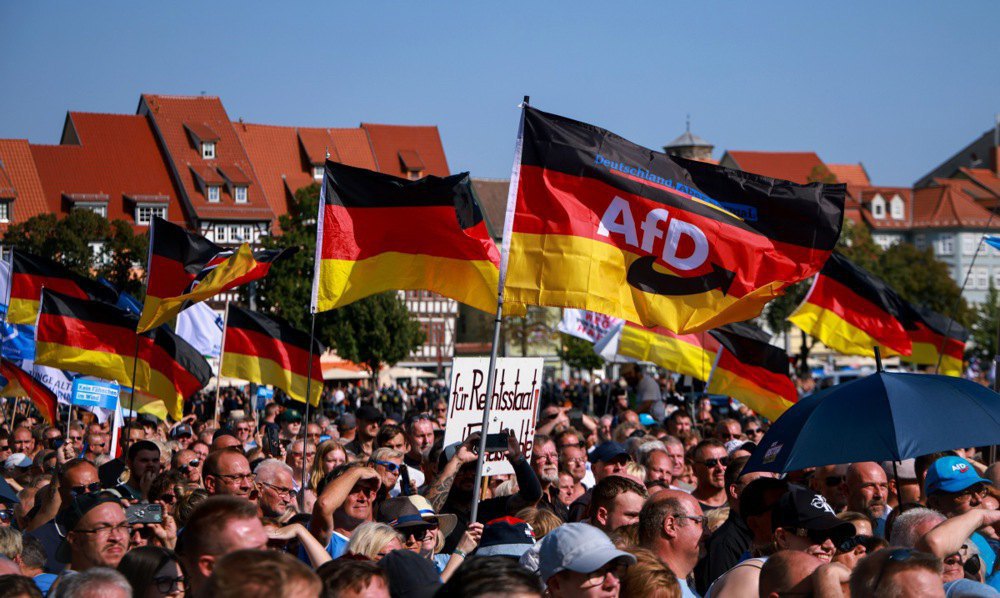
Following the elections, they are currently ranked as the leading party.
Who is Alice Weidel? In Germany, she is a far-right politician, leading a party with xenophobic, homophobic, anti-migrant and anti-LGBTQ rhetoric. Meanwhile, in Switzerland, she lives in a civil partnership with a woman from Sri Lanka and is raising two sons.
I am not saying whether this is good or bad – I am simply asking: how does she reconcile these two realities? I wonder what values they are passing on to their sons. She is openly lesbian and appears not only to tolerate, but to love a person of a different nationality – and yet she travels to Germany and supports far-right rhetoric. Where is her authentic self? Where is the “left”, where is the “right”, and do these terms even apply?
Germany presents us with two striking figures: Sahra Wagenknecht and Alice Weidel – who embody the two radical wings of German politics. But in truth, they are neither far left nor far right. They represent something entirely new. As a political philosopher, I can no longer assess them as representatives of either the far-right or the far-left movement.
The paradox is that Europeans’ attitude towards Russians is very Marxist
Is it possible, then, to assess the authenticity of such values? Every ideology or form of self-identification – whether right or left – is still based on values. If everything is mixed up, that is one issue. But what if these values are simply not genuine? Is the AfD winning because society truly desires the values, programme goals and tasks it promotes – or is it that this politician assumes such an identity solely for the purposes of political competition within a specific country, while her values are not authentic? Is she merely playing the role of a right-wing radical?
Here, the concepts of values and interests become entangled – and this is where the left is especially manipulative. They draw on Marx, who argued that values are a superstructure and not fundamental to society – whereas economic interests are.
If we radicalise and simplify Marx’s ideology, then ultimately we are not speaking about dignity, freedom or rights, but about money, wealth and economic interests. Nothing personal – just business. This is quite a powerful position. And this Marxist idea has permeated not only the far left, but also the far right.
The paradox is that Europeans’ attitude towards Russians is, in fact, very Marxist. The Germans and the French believed: if we – Germans and French, historically eternal enemies – managed to reconcile on the basis of common economic interests (recall that the European Union was born out of the European Coal and Steel Community), then why not do the same with Russia?
Their reasoning was: it is more profitable to be friends and cooperate than to fight. The Russians have valuable resources, we have advanced technology. We need their resources, they need our technology – it is a win–win situation. Everything will be fine. We are building pipelines, everything in Europe is wonderful.
The result, however, is a terrible war. It turns out that people are not driven solely by economic interests – there is something else at play, and it is not necessarily values either.
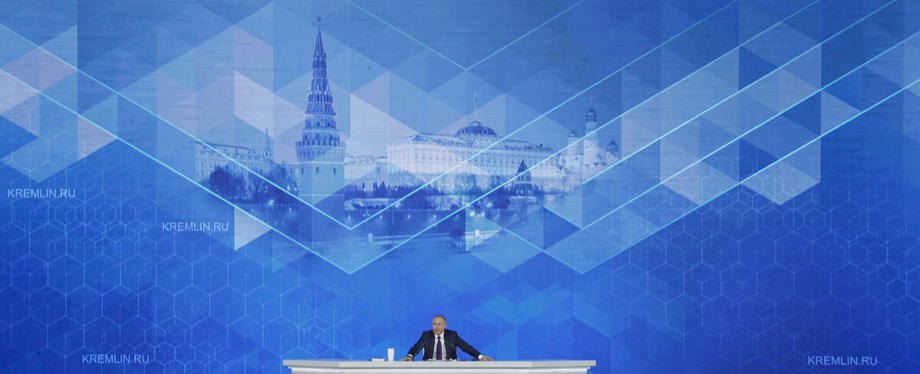
What drives Putin? What drives the Russians? Why are they waging this war? There are no discernible values behind it. Can it be explained through economic interests? It would clearly have been more profitable to complete both Nord Stream pipelines and continue trading with Europe through Ukraine and the Baltic states. That would have been economically beneficial – yet it did not happen. So something else must be driving them.
Perhaps Freud was right – perhaps it stems from the unconscious, from some form of sexual complexes. Perhaps Nietzsche was right – perhaps it is the will to power. Perhaps it is something else entirely, something we do not yet perceive. But to reduce everything to economic interests is also a flawed and dangerous strategy.
When analysing contemporary developments in Europe, we cannot rely solely on the left–right spectrum. What we are witnessing is the radicalisation of the political field – and it is dangerous on both sides.
We must not equate strength with power
This brings us to the notion of power as the key element in international relations. The post-war European treaty no longer functions effectively. The urgent question is whether measures can still be taken to counter this radicalisation and prevent an even greater war. It is not in Ukraine’s interest for the war to spread across multiple fronts – particularly if, alongside the Russian Federation, other actors such as North Korea or even larger states, including the Chinese military, were to join in.
We must not confuse strength with violence. The German word Macht and the English word power can signify both strength and authority. Gewalt and violence, on the other hand, refer specifically to violence – these are different roots. Unfortunately, in our own language, the terms for strength and violence share the same root, which blurs this distinction.
Hannah Arendt can offer insight here. In her short essay On Violence and in The Human Condition – which I consider one of the most important liberal philosophical manifestos of the 20th century – she makes a crucial distinction.
Arendt writes that violence can destroy power, but it can never replace it.
What, then, is power as just force? It is something that arises from people living together. In essence, it is the republic – a shared cause. This kind of power is only possible in true political nations, in genuine liberal democracies. When horizontal solidarity and the voluntary coming together of citizens generate power from below, the result is a successful, functioning society and a political nation with a viable future.
Where this social strength – embodied in legitimate state power – is lacking, violence emerges. But violence does not replace true power or strength; it merely destroys and disintegrates society. This threat is present today.
I do not have a clear solution for how to combat this, but we must at least be aware of the problem. We must not equate strength with power.
The political left and right alike often conflate strength with power – and both confuse strength with violence. This thinking goes back to Lenin, who was not an original thinker. For the most part, he merely simplified and radicalised the ideas of more profound thinkers of his time or earlier eras. His definition of state power as an apparatus of violence is a crude reduction of Max Weber’s much more nuanced position.
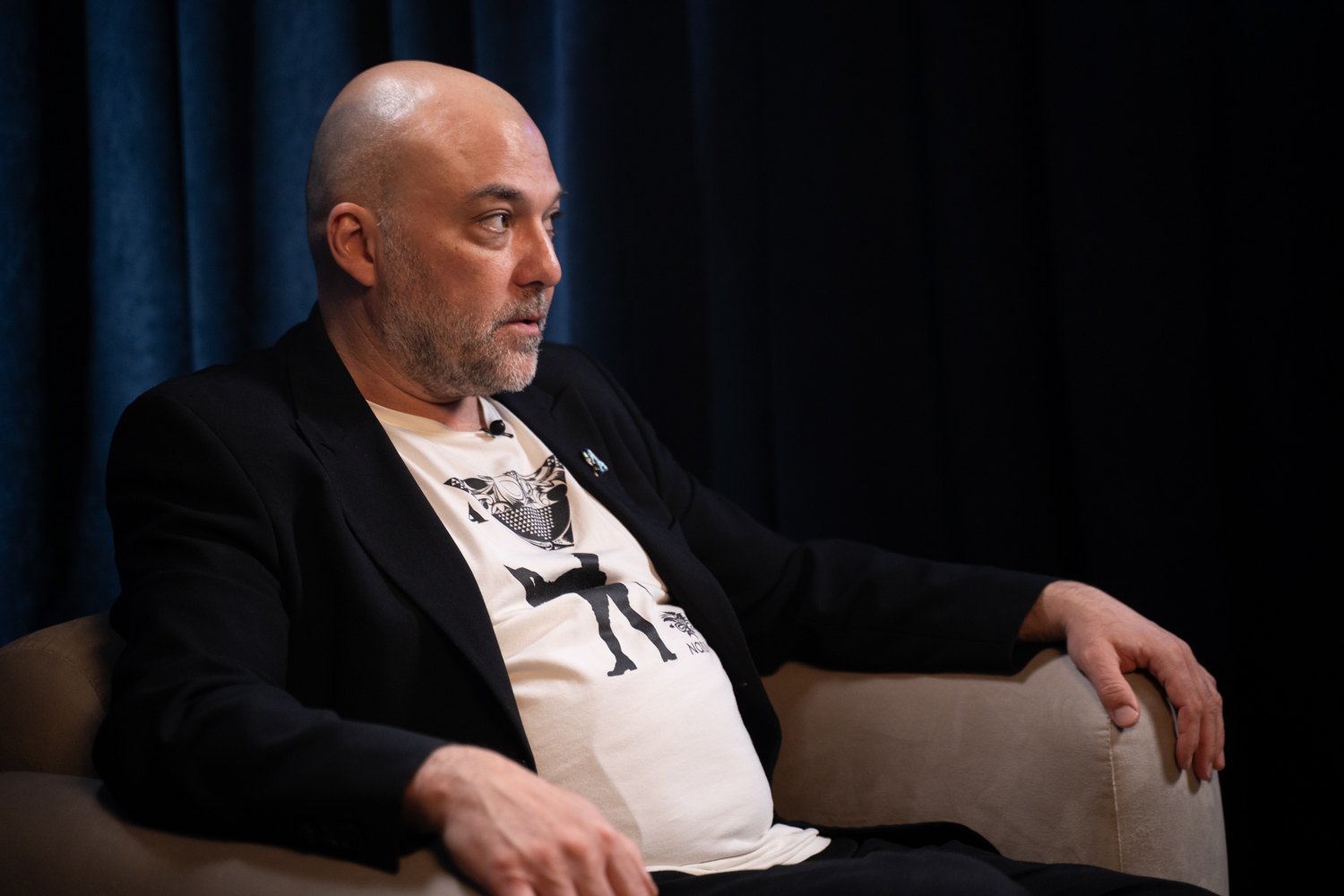
Weber defines the state as the only social institution with a legitimate right to use violence. However, he also places a series of safeguards between the concepts of “power” and “violence”. Power is legitimised through the social contract, democratic elections, the separation of powers, and a system of checks and balances. The right to use force is limited, conditional and enshrined in constitutions and legal frameworks.
Lenin strips this down to a simplistic formula: power is violence. This view is convenient for both political extremes. Nazis adopt it and say, “Yes, power is violence – and that’s how it should be.” They embrace it. Communists say, “That’s terrible – and we must destroy all power through unlimited violence.” This logic leads directly to the Marxist concept of the dictatorship of the proletariat, which the Bolsheviks implemented not to bring about emancipation but to establish the largest concentration camp in human history – the Soviet Union, in which we lived. We know first-hand what it means to live under communist rule. That is why I say: both extremes present a threat.
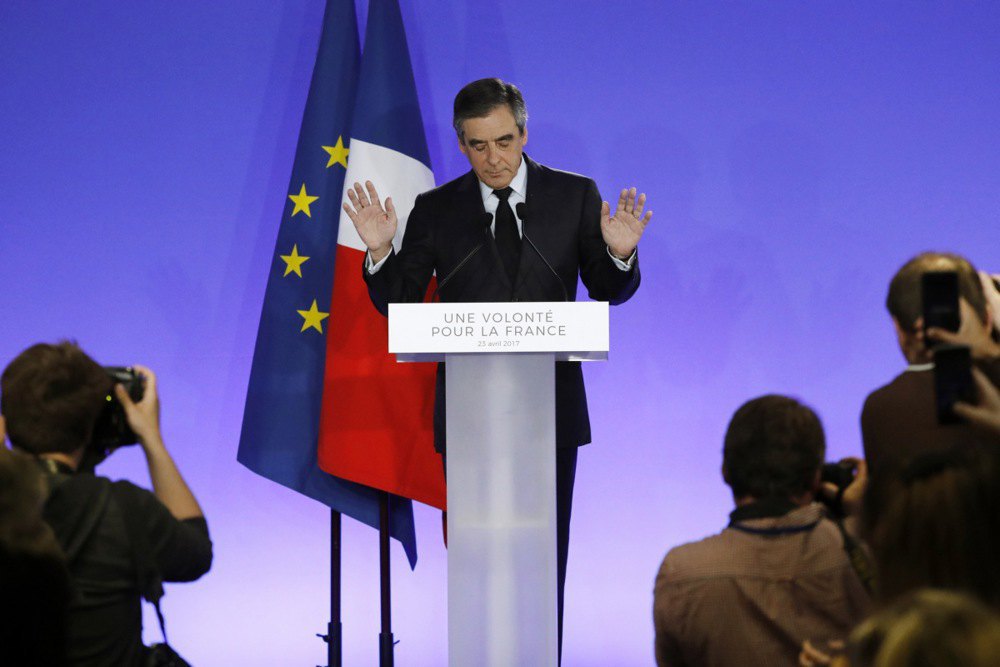
During the 2017 presidential elections in France, when Emmanuel Macron and Marine Le Pen advanced to the second round, François Fillon – a representative of the Republicans, a classic conservative-liberal centrist party – publicly urged his supporters not to vote for Le Pen.
The far-right regimes in Europe were a reaction to post-imperial trauma and the threat of the red plague
He was asked whether he understood that, in doing so, he was effectively supporting Macron – whose left-liberal rhetoric differs significantly from the conservative-liberal position. When asked, “How can you, even indirectly, support your enemy?” Fillon replied, “Do not confuse the enemies of liberalism and democracy with political opponents.” I believe this statement should be included in history textbooks. I am not personally a fan of Fillon – he has been implicated in corruption scandals – but this was an entirely balanced and sincere response from a man representing the political centre.
In contrast, the only candidate who supported Le Pen at the time was Jean-Luc Mélenchon – an ultra-leftist, practically a communist. How is this possible? She is on the far right, is she not? But this demonstrates how the political extremes converge. We see this in France. We see it in Germany. And I am certain it applies to other European countries as well.
“The far-right regimes in Europe at the beginning of the 20th century were the result of post-imperial trauma and a reaction–antidote to the possibility of the spread of the red plague.”
Many observers of international politics feel threatened by the notion that we are approaching a situation similar to that of the 1930s and 1940s – and doing so through fully democratic mechanisms, through elections. What are we to do with the electorate – with voters who are now embracing the radical wing and, it would seem, the future violence that may inevitably follow?
I do not know what to do. I can only speak about what is happening.
The situation is, in some ways, similar – but in other ways radically different. Here, I will again refer to Yaroslav Hrytsak, who writes in his book Overcoming the Past: A Global History of Ukraine that history does not repeat itself, but it rhymes. In this situation, there is a certain rhyme – a certain echo or resonance – but there is no full repetition.
Europe at the beginning of the 20th century was a post-imperial space. Many political nations were grappling with the trauma of losing their empires, while many others were only just emerging from the ruins of those empires.
The Spanish Empire experienced trauma. Other European empires suffered similar fates. Austria–Hungary collapsed as a result of the First World War. Germany, having failed to realise its imperial ambitions in the First Reich, lost the war. The trauma of defeat and the bitterness of resentment are captured vividly in the literature of the so-called “lost generation”. Read Remarque and you will find the emotional state of all those Germans who emerged from the First World War.
But perhaps the most important factor was the looming threat of the red plague. Europeans looked eastward to the Soviet Union – a country where the communists had seized power – and feared that this ideological disease could spread throughout the continent.
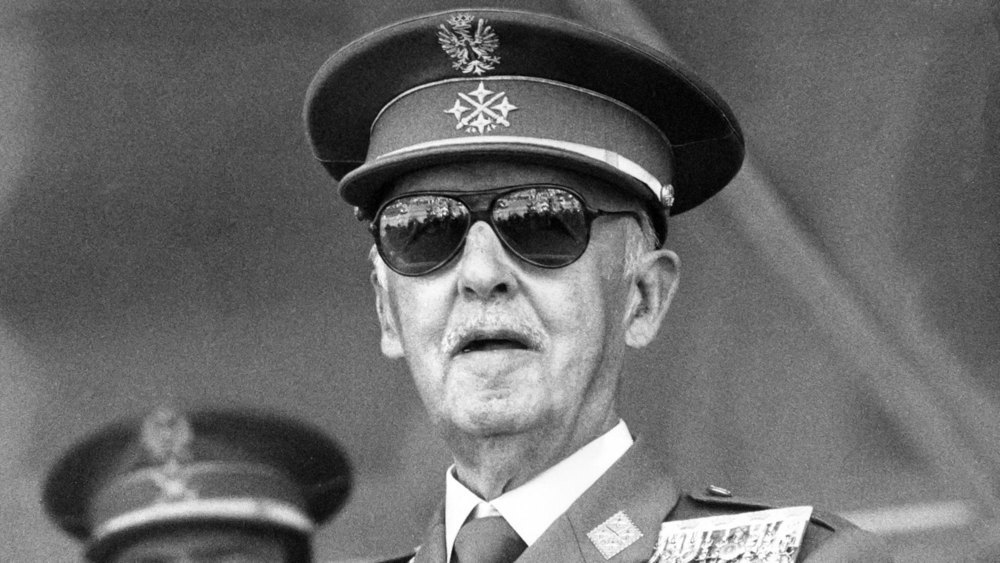
One can recall the case of Spain. Franco’s authoritarianism was born out of victory over the left. A brutal civil war took place, but from 1939 – the year of Franco’s triumph – Spain largely refrained from involvement in external hostilities. There was one Blue Division that found itself on the front lines, but it returned quickly. Spain even has a commemorative monument marking “25 years of peace” – referring to 25 years of Franco’s rule.
The far-right regimes in early 20th-century Europe were, in part, a consequence of post-imperial trauma. But they were also a reaction – an antidote – to the potential spread of the communist red plague.
Today, the situation is different. For many European countries, empires belong to a distant past. While some imperial nostalgia still exists, I believe it is more cultural than political. And there is no real threat of communist dictatorship; even Russia does not present itself as a country that has abolished private ownership of the means of production or is governed by communist ideology.
That is not the case in today’s Europe. The challenges now are different: migration caused by war and humanitarian disasters in the Middle East and Africa, and various internal issues. So, while the situation bears some resemblance to the past, it also differs significantly.
Can you explain why the average migrant appears to pose a greater threat to the average EU citizen than the Russian Federation – which, according to the intelligence services of many EU member states, is likely to launch an attack within the next three to five years, and possibly sooner, judging by recent statements?
These threats are comparable. Besides, what is the alternative? We all speak of the potential collapse of the Russian Empire. It is, of course, our dream scenario. At the very least, we understand that as long as Russia remains in its current configuration, peace will be out of reach.
However, the collapse of the Russian Empire would be a geopolitical event of global proportions. For instance, waves of refugees could flow from Russia into Europe – passing through our territory.
How would we respond in such a situation? These are our enemies – the ones who came to kill us and continue doing so – and now they would be fleeing disaster. They would arrive as civilians, with children, without weapons. How would we treat them?
I do not know. I do not have an answer to that question.
And this could be the consequence if our dream – one that still feels illusory – were to come true and the Russian Empire were to begin collapsing.
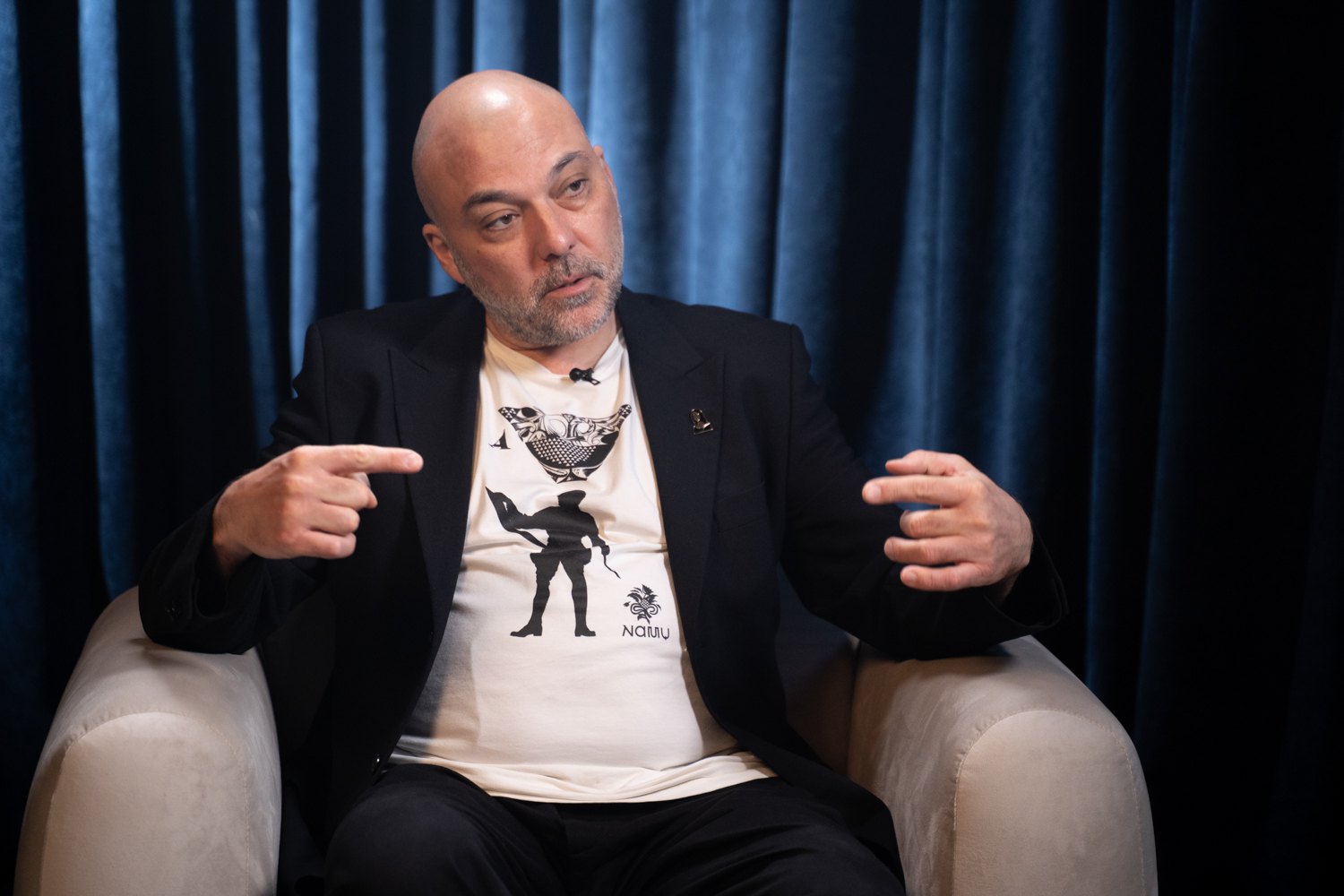
Militarisation is not only about the army – society and the economy must change too
There have been statements from Ukrainian leaders asserting the need for Ukraine to serve as a security provider for Europe – to use force and defensive measures on Europe’s behalf. Ukraine is proposing that the EU finance its armed forces so that the war may end, Ukraine may survive, and war will not come to Europe. Do you believe democracy can be both militant and effective? Can militant democracy exist within the framework of the European Union?
This raises a deeper question: to what extent is democracy capable of defending itself?
I am a pacifist, so I would not wish to live in a militarised society. But I understand that the only way our country can survive is through militarisation.
Militarisation does not simply mean providing support to the army – the entire society must be militarised. We must live with the awareness that a terrible enemy stands at our doorstep. Not only our enemy, but an enemy of humanity itself – one that wages war in entirely inhumane ways. As we know, the Russians commit every possible and impossible crime during wartime. What can we oppose to this? Only power – and not only our own power, but the collective strength of Europe as well.
I do not want to live in such a society. I would not wish future generations to live in such a society. But we are left with no alternative. Either Russia destroys us, or we become a serious military power capable of stopping this enemy. And for that, we certainly need the support of all our partners.
How can we, as a militant nation, preserve democracy – particularly if the traditional mechanisms of democratic systems are currently underused and may deteriorate further?
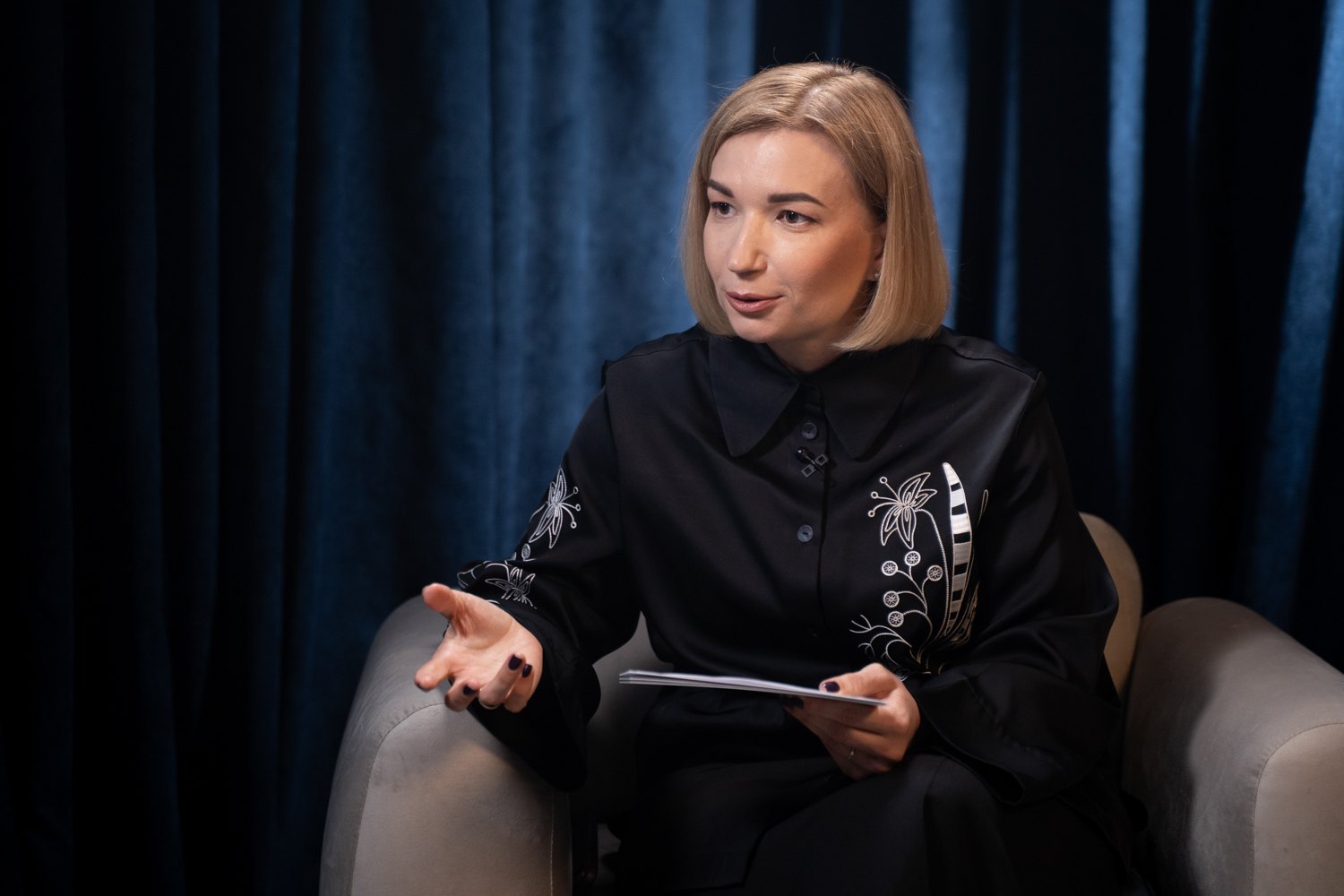
I do not know – it is a serious challenge. This is not merely a philosophical question; it is also one for politicians, legal scholars and civil society leaders.
We must study the existing global examples. Consider Israel – we often say that the Israeli model may be the most suitable one for us.
There is also the example of South Korea. To what extent South Korea or Israel are democracies in the traditional European sense is open to debate. However, they are countries with liberal democratic systems – elections, separation of powers, protection of private property – that exist in conditions of permanent threat, surrounded by enemies.
Israel has been encircled by hostile forces since its founding. There is South Korea, and there is also Taiwan. Why has Taiwan not fallen to China? Why does South Korea hold firm? Why has Israel endured?
Because there exists an international system of checks and balances.
Why does it function?
Because economic interests are at stake.
And so we return to the same point: the militarisation of Ukrainian society must go beyond the formation of a strong army. It must bring about profound changes to our society and economy – changes that will ensure our international partners are invested in our survival.
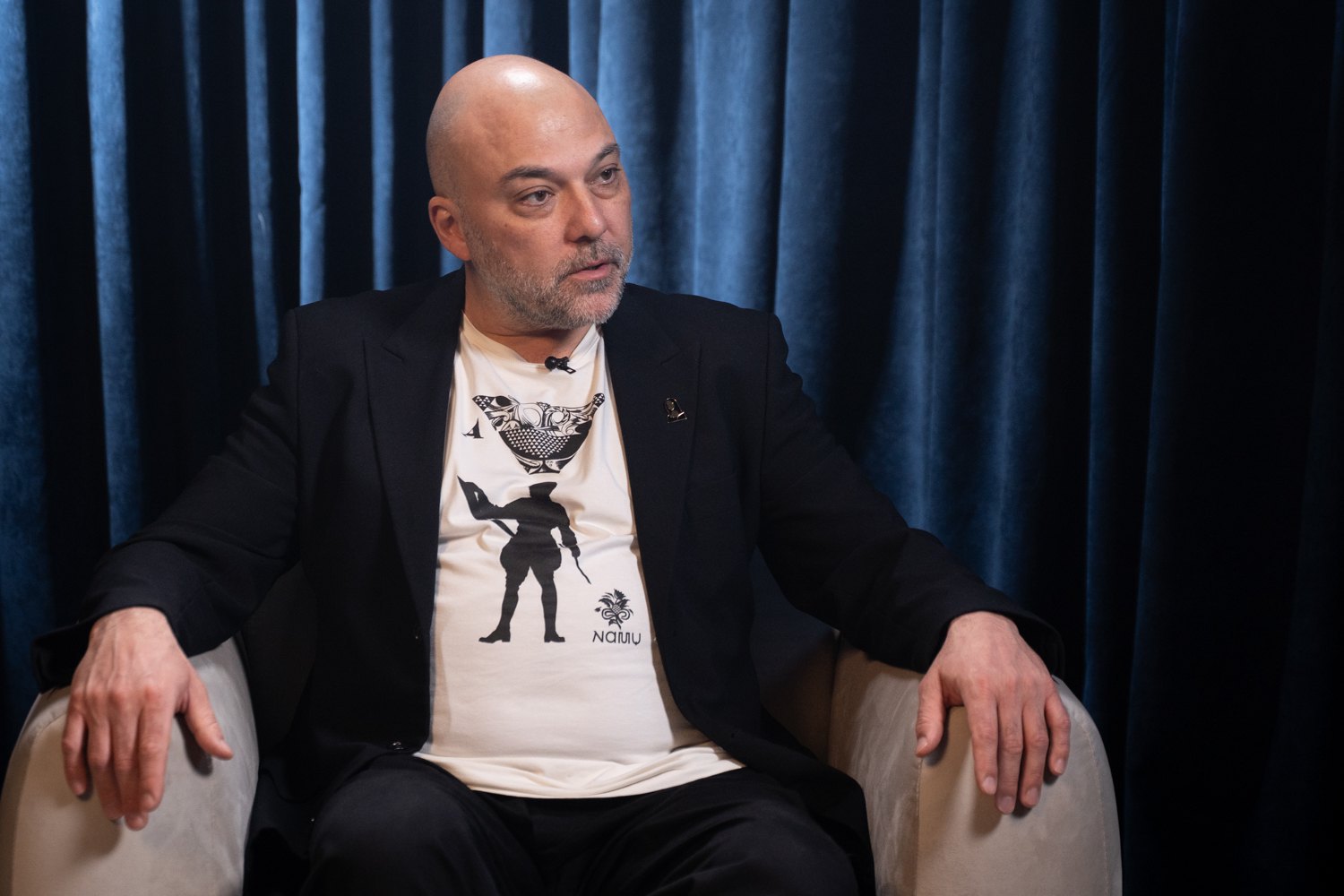
“Until the recent events in the United States, the situation in Ukraine was crystal clear to all sane people: evil was on one side.”
Let us imagine that this system of containment collapses – and that the United States ends up on the wrong side of history. This is not futurology, but a reflection on what is happening right now. Do you see anyone capable of constructing a new system of counteraction, deterrence, and checks and balances? And is there a moral force in Europe – which once provided the basis for forming political nations – that could serve as the foundation for such a platform?
We have been speaking primarily about the European context, but now you have rightly drawn attention to the United States.
The US elections – what happened then and what continues to unfold, with new revelations each day – have undermined the core principles on which I had based my understanding of political philosophy.
I have already stated that the opposition between left and right is no longer sufficient, as both can pose threats to liberal democracy. I have referred to Hannah Arendt’s The Human Condition, a vital liberal manifesto.
Writing in the mid-20th century, Popper criticised what he called “philosophical oracles” – the philosophies of Plato, Hegel, and Marx. These systems had birthed ideologies as disparate as fascism and communism. Their flaw, he argued, was that philosophers became politicians and futurologists, imposing their visions of how the world should be – and thereby unleashing horrors.
Popper’s solution was clear: philosophers must not act as oracles or politicians, and politicians must not pose as philosophers. I always agreed with him. Politicians should be engineers – when something in society is broken, it must be repaired. If a better design for society exists, it should be implemented. But if something works, it should be left alone. For me, this was the formula – the panacea.
But what is now being described as “techno-fascism” represents a new threat: engineers without any system of values coming to power and asking only, “What works?” Effectiveness becomes paramount – ideologies, sacrifices, human lives are all secondary, if not irrelevant.
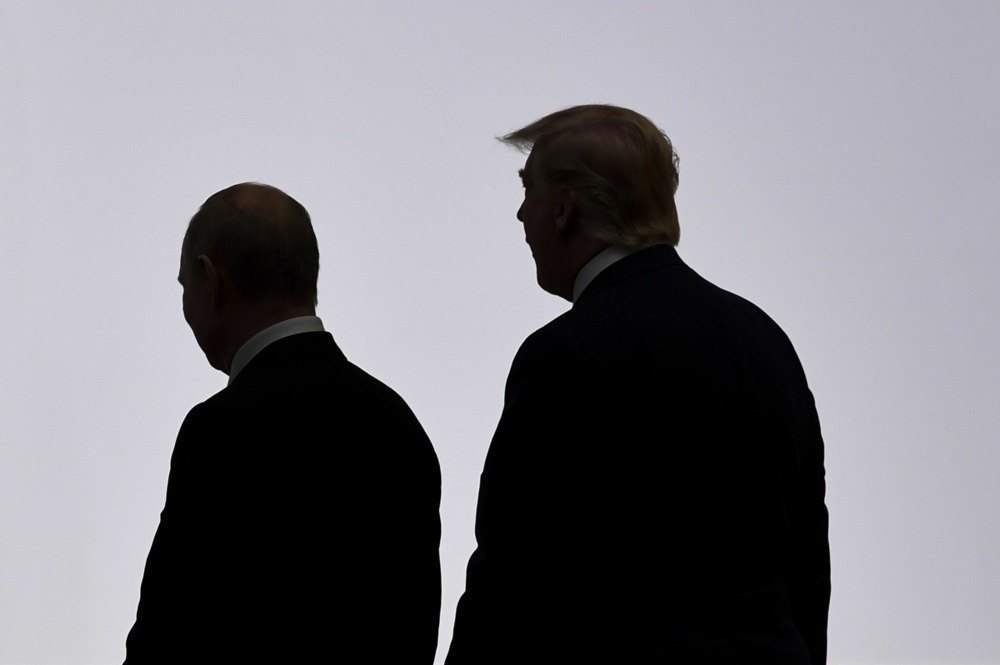
One of the strongest arguments now being made for abandoning Ukraine and returning to cooperation with Russia is the Arctic. Global warming is revealing the region’s mineral wealth, and some argue that it must be jointly exploited. That this would be an ecological disaster, that it could cost millions of lives, that our descendants might not survive on Earth – all of this is brushed aside. This is not the reasoning of philosophers, but of engineers pursuing maximum gain.
In such a context, I can no longer rely on the classical liberal tools. Yes, Plato was dangerous. Hegel and Marx led to Nazism and communism. But Popper’s alternative – the engineer-politician – now also risks producing authoritarianism and totalitarianism on a global scale. We must confront this threat anew.
We – humanity – had a narrow window of opportunity. We have missed it. For a brief time, largely due to Ukraine, there was moral clarity: a rhombus of evil formed by Russia, North Korea, China, and the hesitant BRICS nations. On the other side stood a liberal democratic world – Europe, the United States, and us, Ukraine, as its outpost. The contrast was stark.
But recent developments in the United States – including its emerging negotiations with Russia and China – have shifted the configuration.
Until recently, for all sane observers, Ukraine’s situation was crystal clear: evil was on one side. That clarity is now fading – not because a new Hitler or Stalin has appeared in Europe’s theatre of war, but because changes have occurred at the very heart of liberal democracy, in the United States. These changes are so profound that even the intellectual tools we possess today may be inadequate to comprehend them fully.
And this, returning to 1939, is what distinguishes our time from the Second World War. Then, there were two evils in Europe – Hitler and Stalin. The liberal democratic world did not know which side to choose. Eventually, it made a pragmatic choice to ally with Stalin to defeat Hitler. But what was the consequence of that decision? We continually remind our colleagues in Central and Western Europe: what they call the victory over Nazism was, for us, the triumph of another form of evil.
Western Europe was liberated. Eastern and Central Europe fell under the control of Russian Bolsheviks – a brutal totalitarian concentration camp.








